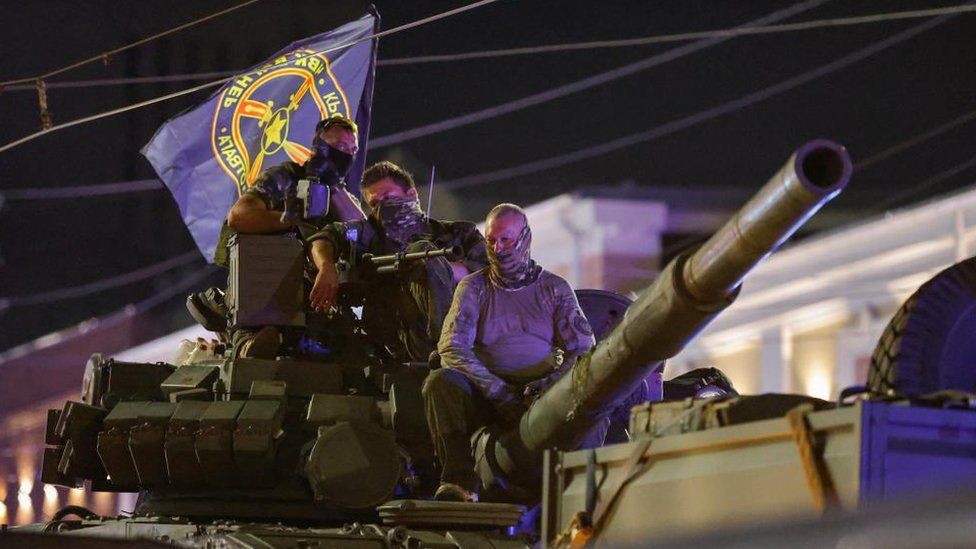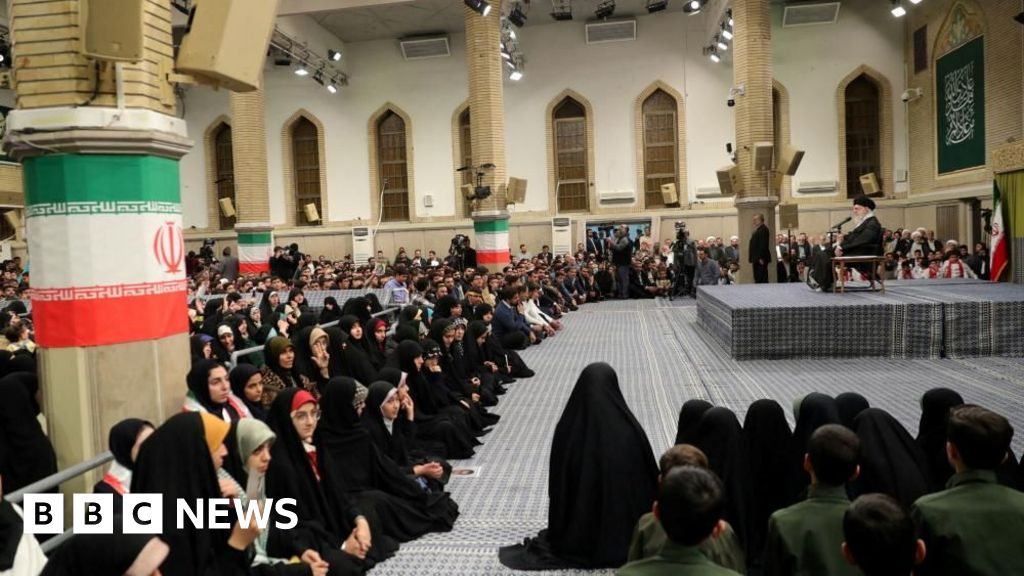ARTICLE AD BOX
 Image source, Reuters
Image source, Reuters
Wagner mercenaries in Rostov-on-Don on Saturday
By Sarah Rainsford, Eastern Europe correspondent & Alys Davies
Warsaw and London
The Wagner mercenary group will be disarmed but will escape prosecution over its short-lived rebellion on Saturday, Russian authorities say.
Preparations are under way for the group to hand over its heavy weapons and equipment to the Russian army, the defence ministry said.
Criminal charges have also been dropped against those who took part in the mutiny, the security forces said.
It comes after the Wagner revolt rocked Russia.
On Saturday, mercenary troops led by Wagner boss Yevgeny Prigozhin took over the southern Russian city of Rostov-on-Don, marched on Moscow and shot down Russian military helicopters and a plane on their way.
Their mutiny was later aborted after a deal was struck with the help of Belarusian leader Alexander Lukashenko. Under the terms of the deal, Prigozhin is meant to head to Belarus.
A private jet, linked to Prigozhin, landed in the capital Minsk on Tuesday morning. It is not clear yet whether he was on board, and Kremlin spokesman Dmitry Peskov said he had no information on Prigozhin's whereabouts.
Meanwhile the FSB security forces also announced that the case against the Wagner fighters - who were facing prosecution for armed insurrection - was now closed because the mutineers had stopped short of actually committing a crime.
Its fighters can either join the regular army, go home or head for Belarus, Russia's President Vladimir Putin said, adding that the fighters were mostly "patriots" who had been misled into a criminal adventure.
The latest announcements came after an angry speech by President Putin on Monday evening, in which he accused the mutiny leaders of wanting "to see Russia choked in bloody strife".
On Tuesday Mr Putin told Russian troops in Moscow they had prevented a "civil war" and held a minute's silence for those killed.
He insisted that the Wagner forces never had the support of the army or the people, although crowds cheered and applauded Wagner troops as they left Rostov-on-Don.
The treatment of the mercenaries stands in marked contrast to the treatment of opposition politicians and activists, many of whom are in prison simply for speaking out against the war in Ukraine.
Opposition activist Vladimir Kara-Murza, for example, is serving 25 years for treason.
By contrast, Wagner chief Prigozhin and the armed men who took part in the rebellion are seemingly being allowed to go free.
Prigozhin has defended his actions, insisting the revolt was not meant to be a challenge to the leadership of Mr Putin.
Rather, he described it as a bid to save his mercenary group from being absorbed into the Russian army, and to expose the failures of the country's military leadership.
Watch: The day Wagner chief went rogue... in 96 seconds

 1 year ago
28
1 year ago
28








 English (US)
English (US)